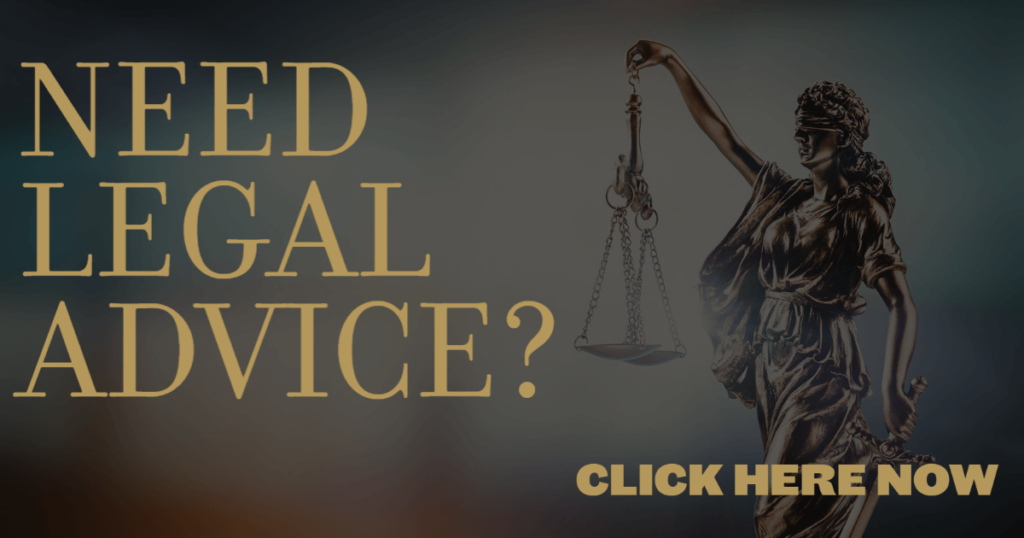Nevada’s comparative negligence laws are like a mysterious puzzle waiting to be solved.
As if searching for buried treasure, you must take your time and dig deep in order to understand the nuances of these complex regulations.
This article will provide readers with an exploration into Nevada’s comparative negligence laws, offering insight on how they affect individuals who have been injured due to someone else’s fault.
Through a thorough examination of the legal principles involved, readers will gain a better comprehension of this important area of law.
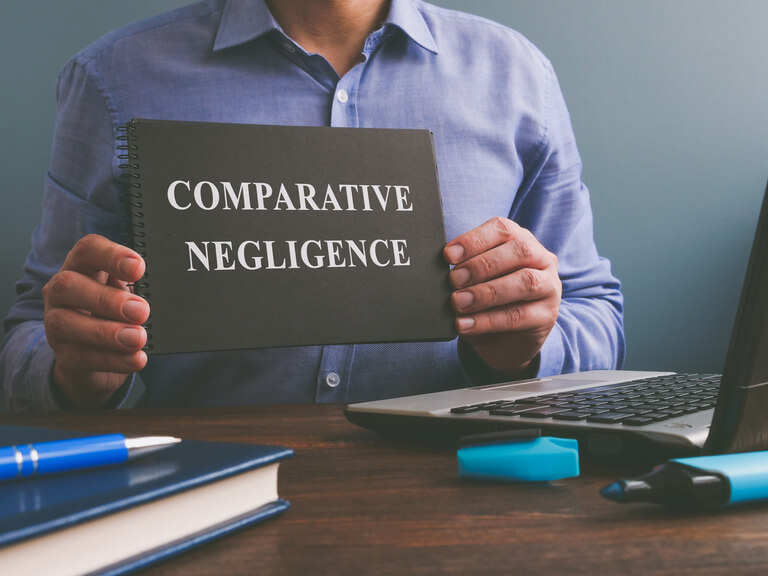
Overview Of Comparative Negligence Laws In Nevada
Comparative negligence laws help to determine how responsible a person is for an accident.
In Nevada, these laws are important when it comes to personal injury cases.
Personal injury attorneys use the state’s comparative negligence laws in order to decide who should pay for the damages.
Nevada has two types of comparative negligence laws: modified and pure comparative negligence.
Modified comparative negligence limits a person’s liability if they were partially at fault for an accident or injury, while pure comparative negligence holds everyone responsible regardless of their level of fault.
Both types of law can have an impact on car accident cases in Nevada, so understanding them is essential for anyone involved in a crash.
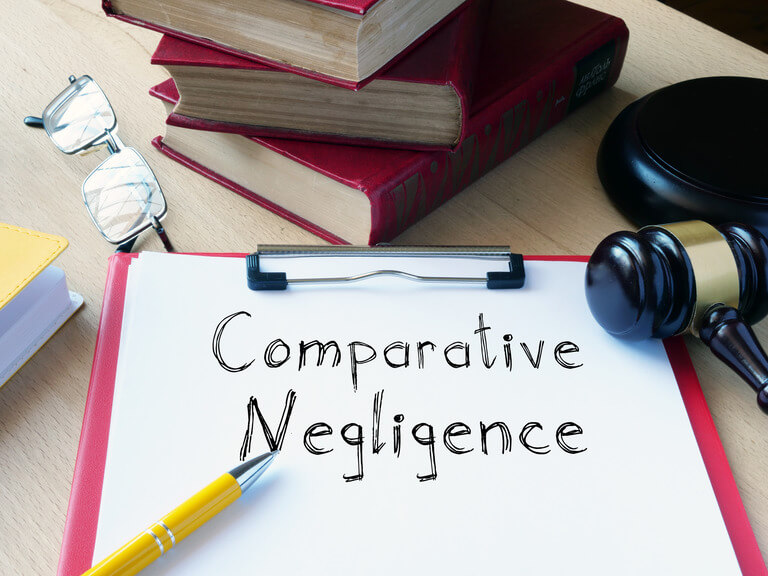
Impact Of Comparative Negligence On Car Accident Cases
Car accidents can be complicated, and Nevada’s comparative negligence laws make it even more difficult.
Comparative negligence weighs the amount of fault each party holds in an accident and determines how much responsibility they have for damages caused by the crash.
The court will assign a percentage of fault to each person involved, with the most at-fault being liable for any remaining damage costs.
If a person is found to be partially responsible for their own injury or losses, then their compensation award may be reduced according to the percentage of fault assigned to them.
Comparative negligence also affects car accident cases in Nevada because it shows who was primarily responsible for causing the collision.
This helps decide liability and whether someone should receive compensation or not.
It’s important to prove that another driver was mostly at fault so you can get your fair share of any settlement or award money available.
Proving Negligence In A Car Accident Case
Navigating the Nevada legal system can be hard.
But it’s important to understand your legal rights if you have been in a car accident.
Experienced attorneys can help people recover damages from an accident or injury caused by another person’s negligence.
In Nevada, understanding comparative negligence is key for those injured in accidents.
You need to know how it affects your ability to recover money for your losses and injuries.
Comparative Negligence helps determine how much each party involved in an accident may be responsible for their own actions that lead up to the crash. With this information, you can decide whether taking legal action is worth pursuing or not.
Knowing your legal rights and having experienced counsel on your side will ensure that all of your questions are answered and that you receive maximum compensation for any damages incurred due to someone else’s negligence.
This will give you peace of mind as you navigate through the process of recovering from a traumatic experience like a car accident.
It’s time now to turn our focus towards explaining Nevada’s contributory negligence rule – something everyone needs to know when facing potential liability after an auto collision.
Nevada's Contributory Negligence Rule Explained
It’s been a wild ride so far. We’ve looked at the evidence needed to prove negligence in a car accident case, and now it’s time to explore Nevada’s laws regarding contributory negligence. Injured parties should be aware of these rules when pursuing legal action against another driver.
In Nevada, juries are required to consider both comparative and contributory negligence when deciding a case. Evidence presented by each party is used to determine how much fault lies with either side.
Depending on state law, an injured person may still recover damages even if they were partly responsible for their own injuries; however, the amount awarded will likely be reduced based on the percentage of fault assigned to them by the jury.
When it comes to understanding your rights following an injury-causing accident, knowledge of the applicable rules can make all the difference. Knowing what kind of evidence you need or which state law applies could mean recovering more money from your claim or being able to seek justice where otherwise you would have none.
It pays off to do your research!
Moving forward we’ll look into understanding comparative negligence versus contributory negligence in greater detail.
Understanding Comparative Negligence Vs. Contributory Negligence
In Las Vegas, Nevada, the law of Comparative Negligence is used to determine who was at fault in an accident. This means that both parties involved can be found responsible for causing or contributing to the incident.
In cases where one party is more responsible than the other, the victim may be entitled to receive compensation from the defendants.
If a person believes they were wrongfully injured in an accident, it’s important for them to consult with an attorney as soon as possible.
The concept of Contributory Negligence works differently from comparative negligence and should also be taken into account when determining fault in accidents. It states that if a victim contributes even partially to their own injury then they cannot recover damages from another party – no matter how small their contribution may have been.
Victims must prove that any contributory negligence on their part did not cause or contribute to the accident before being able to pursue legal action against another party.
Impact Of Comparative Negligence On Car Accident Settlements
As we transition to the next section, it’s important to consider how comparative negligence affects car accident settlements.
Comparative negligence is designed to prevent one party from being unfairly punished in a settlement and allows both parties to receive full compensation when they can prove their fault.
In Nevada, this means that if two or more parties are at fault for an accident, each party’s damages will be reduced based on the percentage of fault assigned to them by the court.
This system helps ensure that all involved parties get fair treatment and compensation.
For example, if Party A was found 20% liable for an auto crash and Party B was 80%, then Party A would be entitled to 20% of the total damages awarded while Party B would receive 80%.
This approach allows those who were partially responsible for an accident to still recover some damages rather than having all costs assigned to just one driver.
It also ensures that everyone pays what they owe so that no one takes advantage of another person in a legal setting.
Fault Allocation In Car Accident Cases In Nevada
When multiple people are involved in a car accident, the judge looks at who is to blame for causing it.
In Nevada, this process is called fault allocation and requires looking at each party’s actions.
Depending on what happened during the crash, a seasoned lawyer may bring an expert witness to testify about the damages suffered by all three or more parties. The judge will then decide how much fault belongs to each person which will determine their financial responsibility.
Another important factor that comes into play when determining fault is comparative negligence. This means if two or more people were partially responsible for the accident, they can both be held liable for any resulting damage.
By doing so, the court looks at what percentage of fault should be assigned to each party based on their individual contributions to the incident.
Strategies like these help judges come up with fair decisions while ensuring everyone gets a chance to receive compensation for their losses.
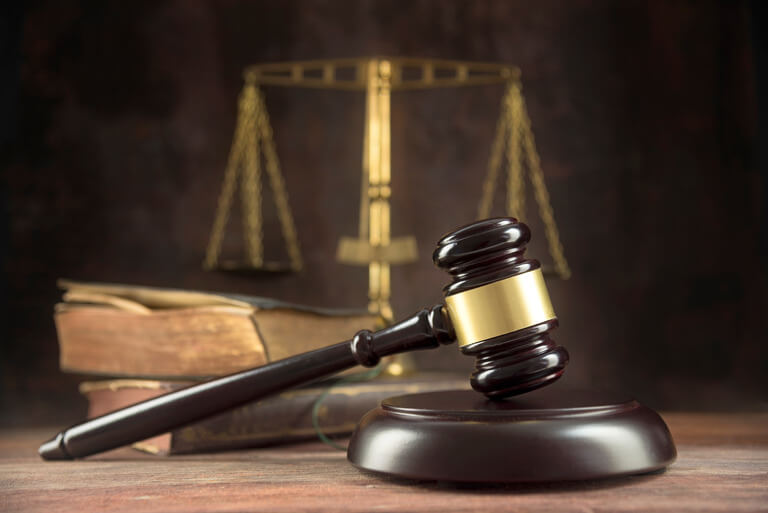
Strategies For Mitigating Damages In A Comparative Negligence Case
In a comparative negligence case, it is important to be aware of the strategies that can help mitigate damages.
One way to do this is by making sure all parties involved are open and honest during their deliberations.
This means providing accurate information about any assault or intentional infliction of emotional distress.
Another strategy to consider is demonstrating how much an individual has contributed in mitigating the damage caused by another party’s negligence.
By doing so, the amount of responsibility assigned to them may be reduced.
It is also essential to take into account other factors such as insurance policies when determining who should bear responsibility for a particular injury or incident.
Doing this will ensure that all parties involved receive fair compensation based on their degree of involvement and contribution towards resolving the issue at hand.
Knowing these strategies can be useful in protecting one’s rights and interests in cases involving comparative negligence.
Dealing With Insurance Adjusters In A Comparative Negligence Case
It’s a coincidence that we’re talking about dealing with insurance adjusters in a comparative negligence case. Witnesses, fairness and battery are all key components to consider. After gathering the facts of our case, it is important to assess who might be responsible for the accident or injury. We must make sure everything is fair and balanced before taking any legal action!
Insurance adjusters often handle claims from both sides. They will want to get an understanding of what happened so they can determine how much money each party should receive. It’s crucial for us to provide them with accurate information about the incident if we want them to come back with a fair settlement offer.
We must also remember that even though insurance companies may have their own interests at heart, we have rights under Nevada law as well!
We now know more about working with insurance adjusters in a comparative negligence claim. The next step is learning how to file such a claim in Nevada–but don’t worry: help is out there!
How To File A Comparative Negligence Claim In Nevada
After talking about dealing with insurance adjusters in a comparative negligence case, now it’s time to learn how to file a claim.
The first thing you should do is look into any toxic substances involved in the incident that caused your injury. If there were any toxic substances present, legislators have set up special compensation for those affected by them.
In addition, if someone else acted deliberately or negligently when they caused the accident, you may also be able to pursue damages through a deliberate tort claim.
Once you know what kind of legal action you can take, it’s time to start putting together your paperwork and filing your claim. To get started on this process, contact an experienced personal injury attorney who will help guide you towards getting the full and fair compensation that you deserve.
Transitioning into the next section: It’s important to know what immediate actions to take after a car accident in Nevada.
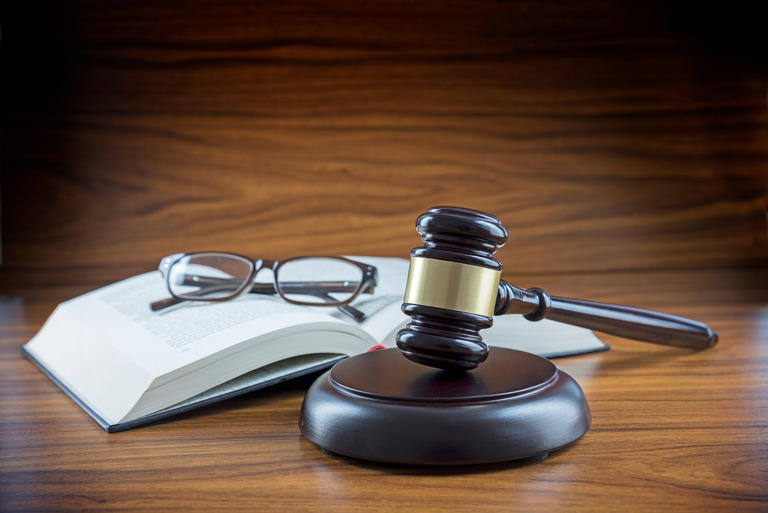
Immediate Actions To Take After A Car Accident In Nevada
Car accidents can be scary and confusing. It’s important to know the laws of Nevada so you can build a solid case if something unfolded. Depending on how the accident happened, the law will differ. In Nevada, comparative negligence is used to determine fault for an accident. This means that each person involved in the crash could get blamed for part of it.
It’s important to take some immediate steps after a car accident in Nevada. You should call 9-1-1 right away and document as much information about the scene as possible, like pictures or witness statements.
Make sure you exchange contact information with anyone else who was involved in the accident too.
Following these steps helps ensure your safety and make sure everyone gets what they are entitled to under the law.
How To Stay Safe At The Scene Of A Car Accident In Nevada
After you’ve taken the immediate actions after a car accident in Nevada, it’s important to stay safe at the scene.
First, check for any injuries and call 911 if needed.
Make sure everyone is out of harm’s way so that no one else gets hurt.
Next, try to move your vehicle off of the road if possible. This will help other drivers avoid getting into an accident as well.
It’s also important to put on reflective gear like vests or jackets before exiting your vehicle so that other drivers can see you better.
You should also use hazard lights or flares if available to alert other drivers about the danger ahead.
If not, make sure traffic is stopped by standing away from your vehicle with your arms raised up until emergency personnel arrives.
By following these safety tips at the scene of a car accident in Nevada, you can prevent further damage and keep yourself safe too!
Gather Evidence After A Car Accident In Nevada
It’s a strange coincidence that after you have been in an accident, the very next step is to gather evidence. It can feel like a lot of work at first but remember gathering evidence is key for any car accident case in Nevada.
The first thing to do is take pictures of the scene and jot down some notes about the crash. This includes noting things such as time of day, weather conditions, road conditions and anything else that may be relevant.
Additionally, if there were any witnesses or other drivers involved make sure to get their contact information. If needed, also document your injuries with photos.
Now it’s time to move onto reporting your accident to insurance company!
How To Report A Car Accident To Your Insurance Company In Nevada
After you have gathered the evidence, it’s time to report your car accident to your insurance company. You should do this as soon as possible after the accident occurs.
Make sure you have all of the information from the other driver before filing a claim. When reporting an accident to your insurer, be prepared with details about what happened, such as when and where the crash occurred. Also provide them with any contact information for witnesses or anyone else involved in the accident.
Give them copies of photos and videos you took at the scene of the accident if available. Finally, make sure to let them know if there were any injuries sustained by those involved in the incident.
By giving your insurer all of this information up front, they can begin working on getting you compensated quickly and efficiently.
When To Seek Legal Representation After A Car Accident In Nevada
The law in Nevada is very important when it comes to car accidents. If you have been injured or your vehicle has been damaged, it’s a good idea to talk to an experienced lawyer. They will help you understand the laws and make sure that you get the compensation that you deserve.
It is also important to remember that even if one person may be responsible for a crash, both parties can still suffer damage and losses. This is known as comparative negligence, which means that both parties share responsibility for any damages caused by the accident.
A knowledgeable attorney can help guide you through this process so that you are not unfairly held liable for something that was out of your control.
An experienced lawyer will also be able to advise on how best to proceed with either going to court or negotiating outside of court following an accident in Nevada. They can handle all aspects of negotiations from filing paperwork, gathering evidence and representing your interests throughout proceedings.
With their expertise and guidance, you’ll be able to ensure that justice is served fairly and quickly after an accident occurs in Nevada.

Conclusion
It is important to understand Nevada’s comparative negligence laws in order to be safe on the roads. Comparative negligence laws determine how much each party involved should pay after a car accident.
It’s also helpful to know what evidence needs to be gathered and reported after an accident, as well as when it’s time to seek legal representation.
To illustrate the importance of understanding these rules, consider this: In 2018 there were 125,521 automobile accidents in Nevada alone – that’s more than 341 collisions per day! Knowing the law can help all drivers stay safe so they don’t become part of that statistic.
So remember, always drive safely and make sure you know your state’s laws regarding car accidents. That way you can keep yourself and others out of harm’s way and protect everyone from being hurt or having their property damaged.

Frequently Asked Questions
What is comparative negligence?
Comparative negligence refers to laws determining how to assign fault and liability when more than one party is responsible for causing an accident. It looks at the percentage of responsibility for each person involved.
How does comparative negligence work in Nevada?
Nevada uses a modified comparative negligence system. This means that if the injured plaintiff is less than 50% at fault for the accident, they can still recover damages, but the amount will be reduced based on their percentage of fault. If the plaintiff is 50% or more at fault, they cannot recover damages.
How does comparative negligence affect car accident cases?
In car accident cases, comparative negligence laws impact the ability to recover damages and the amount that can be recovered. Fault percentages are assigned based on evidence and testimony. This affects settlement amounts and court awards.
What should I do after a car accident in Nevada?
After a car accident in Nevada, you should call 911, exchange information with other drivers, document the scene, seek medical attention if needed, report the accident to insurance, and consider contacting an attorney.
When should I get a lawyer for a car accident case?
It’s a good idea to consult a personal injury attorney after a car accident in Nevada as soon as possible. An experienced lawyer can help protect your rights, deal with insurance companies, determine fault and liability, and pursue maximum compensation for your injuries and losses.
How can I file a comparative negligence claim?
To file a comparative negligence claim in Nevada, work with a personal injury attorney to gather evidence of negligence and damages, determine all at-fault parties, calculate fault percentages, and submit the appropriate forms to the court.

Glossary
Comparative Negligence – Legal doctrine that compares the fault of the injured plaintiff to the defendant(s) in an accident and allocates damages based on a percentage of fault.
Contributory Negligence – Common law doctrine that bars a plaintiff from recovering damages if they are even slightly at fault for causing the accident. This has been replaced by comparative negligence in most states.
Modified Comparative Negligence – System used in Nevada where the plaintiff can recover damages if they are less than 50% at fault, but their award is reduced by their percentage of fault.
Pure Comparative Negligence – System in which the plaintiff’s compensation is reduced based on their share of fault, even if they were mostly (but not wholly) responsible for the accident.
Fault Allocation – Assigning percentages of fault to the parties involved in an accident during legal proceedings. This determines liability and damages amounts.
Settlement – An agreement reached outside of court in which the at-fault party pays the injured party to resolve a claim. Fault percentages affect the settlement amount.
Mitigating Damages – Actions taken by an injured plaintiff to minimize the effects of losses or reduce the severity of injuries. This can impact damage amounts.
Insurance Adjusters – Professionals who assess damage, investigate claims, and negotiate settlement options on behalf of an insurance company after an accident.
Deliberate Tort Claim – A lawsuit seeking damages for an intentional act of harm, as opposed to negligence. It may be pursued in certain accident cases.

More Resources for You
Molly Rosenblum, Esq., our distinguished lead attorney, has not only demonstrated unparalleled dedication in providing exceptional legal representation but has also developed a comprehensive array of resources to support those facing criminal charges. These resources, thoughtfully curated and readily accessible on the Rosenblum Law website, are designed to offer guidance, clarify legal processes, and assist you in navigating the challenges of criminal defense. Here’s an overview of the invaluable resources available to aid you in your time of need:
Criminal Defense Attorneys: A cornerstone resource offering in-depth insights into criminal defense strategies and legal support for a wide range of charges. Explore the resource.
Las Vegas DUI Lawyer: Specialized guidance for those facing DUI charges in Las Vegas, including legal strategies and defense mechanisms. Learn more.
Domestic Violence Lawyer Las Vegas: Dedicated support and legal advice for individuals accused of domestic violence, focusing on defense strategies and legal rights. Discover the details.
Drug Possession Lawyer: Expert legal advice for facing drug possession charges, including defense strategies and the potential implications of such charges. Begin navigating your defense.
Sex Crimes Attorney: Specialized legal support for those accused of sex crimes, offering defense strategies and guidance through the complex legal landscape. Start your defense.
CPS Defense Attorney: Legal assistance for cases involving child protective services, including child abuse and neglect accusations. Understand your rights and defense.
Misdemeanor Lawyer: Guidance and legal representation for misdemeanor charges, emphasizing defense strategies and the impact of these charges. Learn about misdemeanor defense.
Juvenile Defense Lawyers: Dedicated legal services focused on defending minors in juvenile court, offering tailored strategies for young clients. Explore juvenile defense options.
Las Vegas Warrant Defense Attorney: Assistance for individuals with outstanding warrants in Las Vegas, providing legal strategies to address and resolve warrants. Address your warrant issues.
Las Vegas Probation Violation Attorney: Expert legal advice for those accused of violating probation terms, focusing on defense strategies and legal outcomes. Navigate probation violations.
Theft Crime Defense Lawyer: Specialized legal support for theft charges, offering insights into defense tactics and the legal process. Defend against theft charges.
Kidnapping Lawyers: Legal expertise for individuals facing kidnapping charges, focusing on defense strategies and case analysis. Learn about kidnapping defense.
Firearms Lawyer Las Vegas: Legal guidance for firearms-related charges in Las Vegas, including possession, use, and related offenses. Understand firearms law.
Through these resources, Molly Rosenblum, Esq. aims to empower you with the knowledge and legal insight necessary to navigate the complexities of criminal charges. We encourage you to leverage these resources, ensuring that you are well-informed and prepared for the challenges ahead.

Offsite Resources You May Find Helpful
Here are some suggested offsite resources related to comparative negligence that readers may find useful:
American Bar Association (ABA): ABA guide to comparative negligence laws in different states.
State Bar of Nevada: Official organization for lawyers in Nevada with legal resources.

A Special Message from the Author, Our Lead Attorney

Molly Rosenblum, Esq
Thank you for taking the time to explore this overview of comparative negligence laws in Nevada.
I hope you found it informative and that it provided clarity on this complex area of law.
As the article mentioned, understanding these regulations is critical if you have been injured in an accident that was not entirely your fault.
An experienced personal injury attorney can be invaluable in helping you determine liability and seek maximum compensation in such cases.
If you have any questions or would like a free consultation to discuss a potential case, please do not hesitate to call my office at (702) 433-2889. My team and
We have years and years of experience guiding clients through the legal process after automobile accidents. It would be my privilege to put our expertise to work for you.
Again, thank you for your interest in this article.
Please call anytime if we can be of service. I look forward to helping you get the justice and compensation you deserve.
Sincerely,
Molly Rosenblum, Esq.

